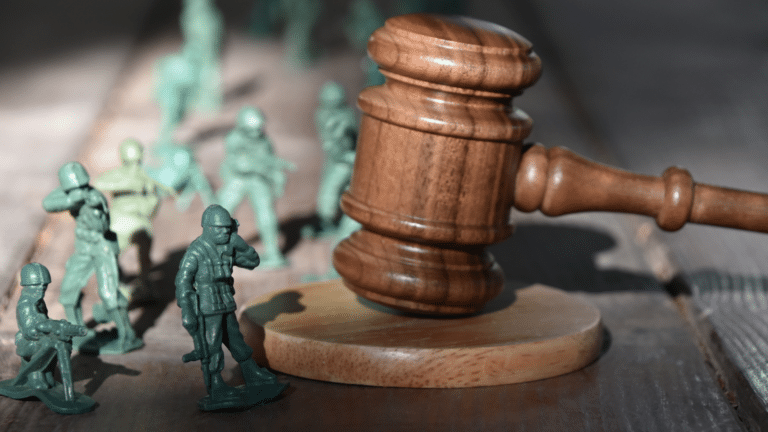Court-martial proceedings are among the most complex and intricate forms of legal action, with many nuances that can be difficult to understand. For individuals who may find themselves or their loved ones facing a court-martial trial, it is important to understand what these trials entail and how to navigate them effectively. In this article, we will unpack the complexities of court-martial trials, looking at key aspects including jurisdiction and types of court-martials, rights of the accused, the role of the judge, and appeals.
If you’re a service member seeking qualified legal help, Kanthaka Group’s dedicated team of military lawyers in Colorado Springs is here to provide top-notch representation and counsel.
Jurisdiction
Court-martial proceedings are governed by the Uniform Code of Military Justice (UCMJ) and applies to all Service Members and some civilians (in special circumstances). Depending on the severity of the crime, commanding officers may choose between three different types of court-martial: summary, special, and general courts-martial. A summary court-martial is used for minor infractions and typically involves only one officer acting as both judge and jury; whereas a special or general court-martial involves a Military Judge, attorney’s, and a panel (jury) composed of several officers and enlisted, both with greater sentencing authority than a summary court-martial would allow.
Rights of the Accused
Military personnel have the right to both Military and Civilian legal representation, the right to remain silent, the right to confront witnesses, and the right to an impartial panel (jury).
Role of the Judge
For a court martial proceeding to go forward, there must be an impartial judge present who will oversee the evidence presented in each case from both sides before rendering a verdict. In a court-martial trial, the judge serves as both the presiding officer and the finder of fact. The judge is responsible for overseeing the trial, determining the admissibility of evidence, and delivering the appropriate sentence if the accused is found guilty.
Appeals
If convicted, the accused may appeal their sentence through two separate processes: post-conviction remedies (PCR) and appellate review. PCR allows defendants convicted by either special or general courts-martial, or those affected by nonjudicial punishment (NJP) to challenge conviction based on the alleged legal error. An appellate review allows those found guilty by a court-martial to have their case reviewed by the Court of Criminal Appeals in the military justice system for a complete review of your case.
Contact Our Colorado Springs Military Lawyers
Court-martial proceedings contain numerous complexities which can be overwhelming for those involved. Kanthaka Group is a law practice based on time-honored legal practices and ethical principles. For thoughtful and informed legal guidance, contact our Colorado Springs military lawyers for an initial consultation or call us at 719-787-7453.
By standing with you today, our military lawyers seek to guide you to a better tomorrow.




